TMU conference examines how technology impacts migrants in Canada
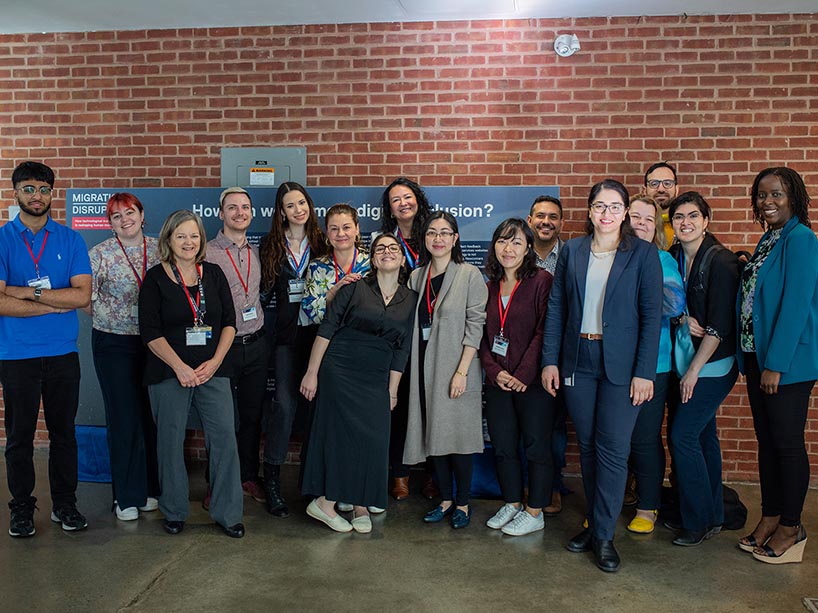
The Migration Disrupted conference covered broad perspectives on how technology influences the experiences and integration of refugees and migrants trying to find their footing in a new society. It also explored how technology’s effect on jobs across the economy is contributing to the structural inequalities that settled migrants and racialized minorities face in their daily lives.
Can artificial intelligence be used for social good? Does technology help or hinder access to health care? How is technology influencing job outcomes for migrant workers?
Earlier in May, Toronto Metropolitan University brought together international researchers and leaders in business and government to discuss many such questions about how rapid technological transformation is reshaping the future of migration in Canada and around the world.
A collaboration between Bridging Divides and the Canada Excellence Research Chair (CERC) in Migration and Integration program, the Migration Disrupted conference included two days of panel discussions, fireside chats and group reflections on the costs and benefits of technological advancement for migrants in Canada.
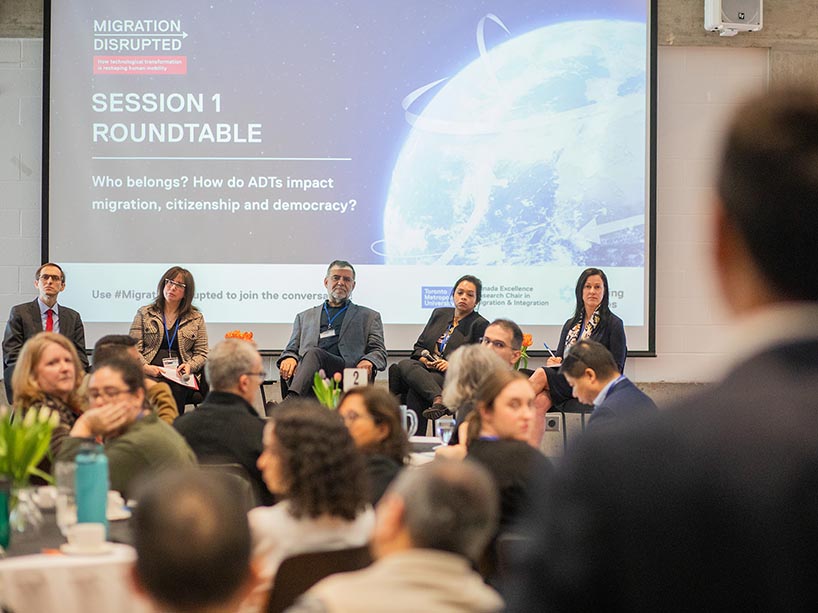
Advanced digital technologies (ADTs) can help migrants connect with informal groups and expand their social networks. They also have the potential to enhance civic engagement and political participation of migrants through online policy consultations or town halls. On the other hand, they present risks around polarization, divisive politics and invisible digital surveillance. Speakers Anatoliy Gruzd from TMU, Ana Beduschi from University of Exeter, Ricardo Baeza from Northeastern University, Munmun De Choudhury from Georgia Institute of Technology and Yasmeen Abu-Laban from University of Alberta discussed the impact of ADTs on migration, citizenship and democracy.
The fireside chat about using artificial intelligence for social good highlighted the technology’s limitations. The AI experts warned that while it has potential to improve efficiency, accountability and agency still rests with the user.
They also pointed to the inherent biases of AI and that underlying the data models are value systems specific to companies and countries from where the AI originates, which could be misaligned to the values of a migrant, for example, or worse, lead to human rights violations.
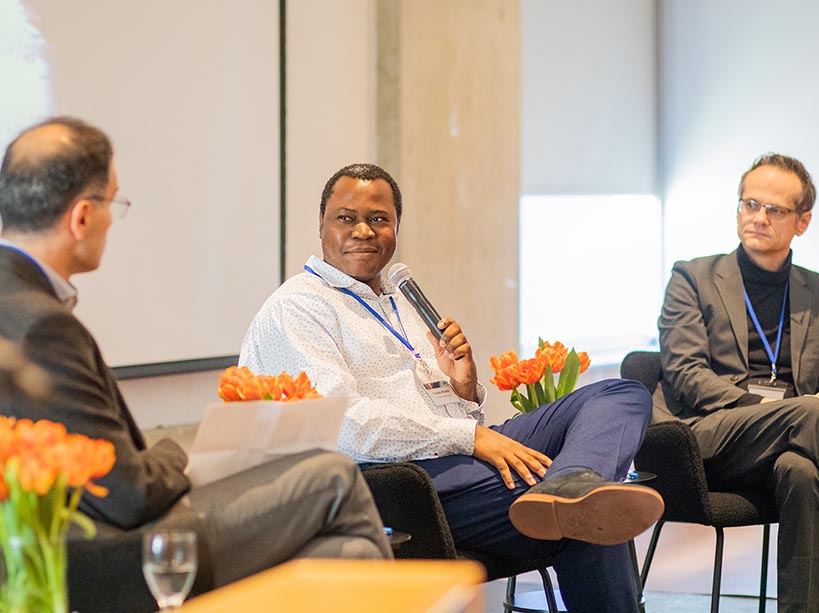
In a fireside chat about using artificial intelligence in immigration and migrant integration, Foutse Khomh of Polytechnique Montréal talked about the technology’s potential to be used for social good. “It needs to be employed in support of human agency and decision-making. Current technology is not ready for autonomous usage; it needs constant assessment by humans to ensure it is used in the right way,” he said. Chief AI Officer at Western University Mark Daley said, “there is no responsible or irresponsible AI; AI is just a technology. Even if a system is autonomous or semi-autonomous, the human behind it is still responsible. You are the agent and you need to exercise that agency responsibly.”
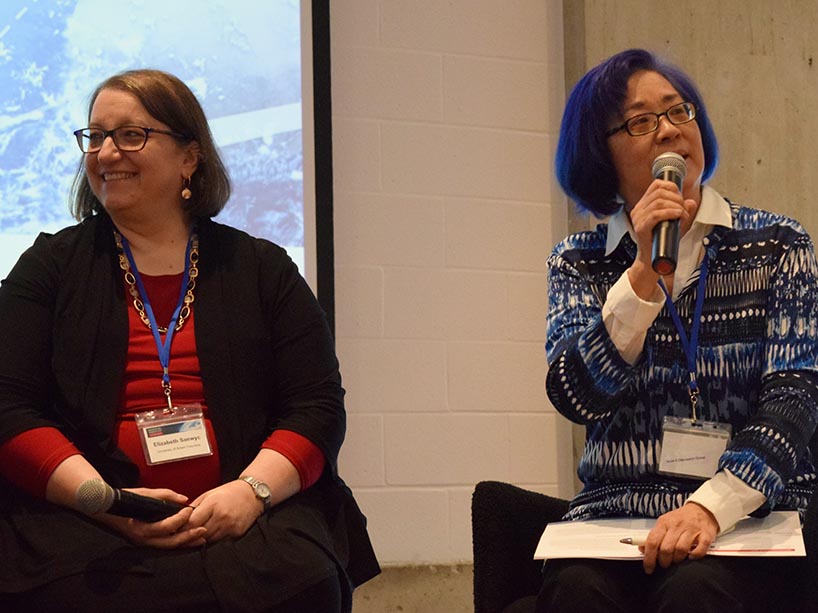
At the second roundtable session chaired by TMU Nursing Professor Josephine Wong, experts discussed how digital technologies have improved health care and quality of life in many ways, but they also need to support equitable access to health care and migrant well-being. Panellists included Marla Asis from Scalabrini Migration Centre, Andre Renzaho from Western Sydney University, Elizabeth Saewyc from University of British Columbia and Karen Soldatic from Toronto Metropolitan University.
“Highly vulnerable communities and people with disabilities like advanced digital technologies because when the design is right, the human judgment about your worth and value is gone,” said Karen Soldatic, professor at TMU’s School of Disability Studies and the Canada Excellence Research Chair in Health Equity and Community Wellbeing. She noted that to develop a technology design that is inclusive, effective and dignified, “it takes time.”
Andre Renzaho said that “we need to consider the social determinants of digital technologies. If digital content is not relevant or accurate for the community, or people can’t afford digital access, they will be excluded from vital and accurate health information.”
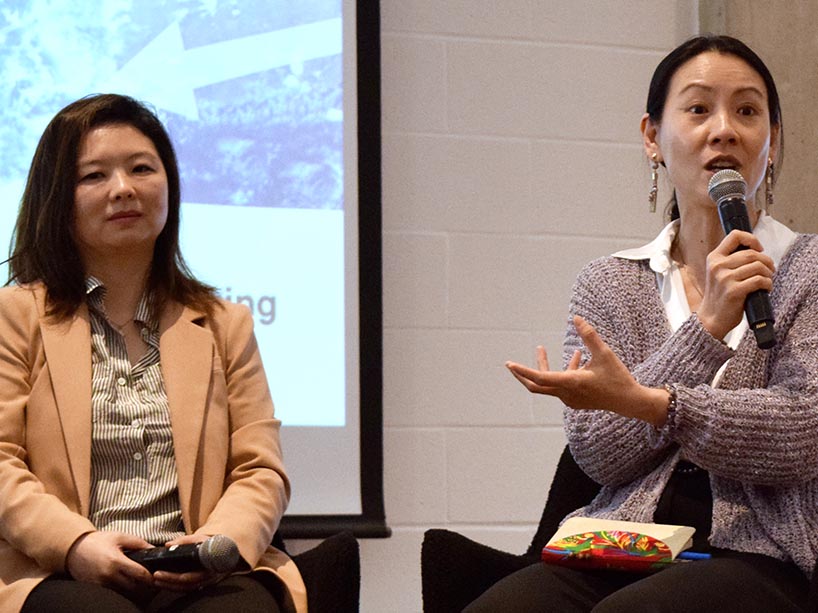
Day two of the conference kicked off with a discussion about designing social and technological infrastructure that can affect how services are delivered, the organization of workplaces and social networks, and how a community welcomes newcomers. TMU Urban Planning Professor Zhixi Zhuang said that the focus should be on the peripheries, where social and physical infrastructures are most underdeveloped. "Staying in Canada is different from arriving in Canada. We are talking about civic, spatial, economic and social inclusion. How can technology support that?"
Other speakers included Cathy Yang Liu from Georgia State University, Gil Penalosa from 8 80 Cities and Geoffrey Rockwell from the University of Alberta.
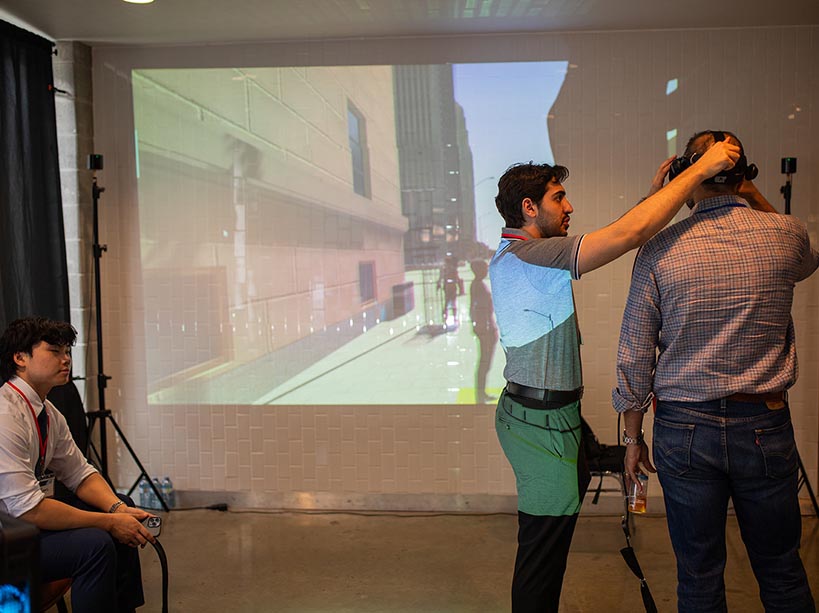
In his presentation, Bilal Farooq from TMU’s Laboratory of Innovations in Transportation (LiTrans) shared how they are using extended reality (XR) and digital twins technology to understand human travel behaviour when faced with novel and emerging future choices such as automated vehicles. Pictured here is a student demonstrating how these disruptive technologies have the potential to be useful tools for studying the behaviour, preferences and decisions of migrants.
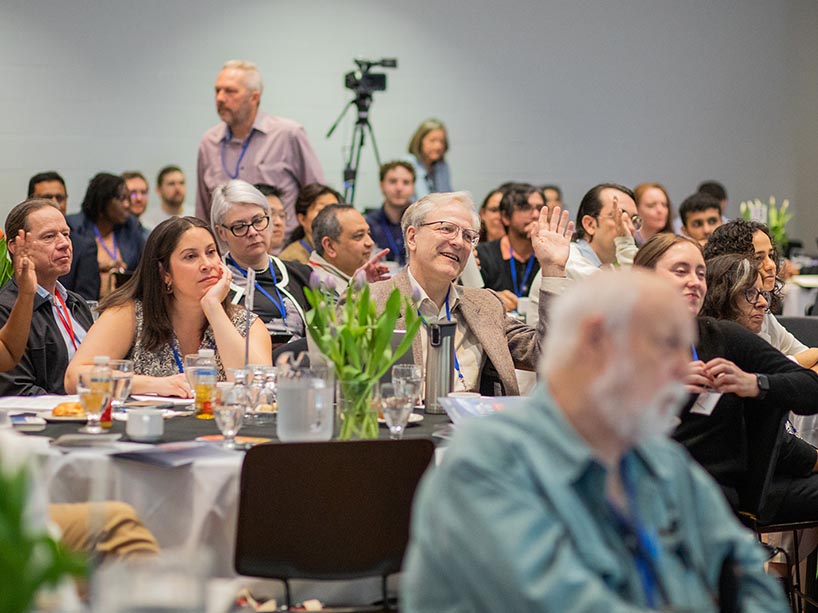
Small group discussions were held to exchange ideas and diverse perspectives on topics such as strengthening digital inclusion in newcomer integration processes and exploring directions for future research and learning.
Technology is already affecting job market trends with automation, artificial intelligence and digitization influencing job structures and skill requirements. In the final roundtable discussion, experts discussed how it’s becoming crucial for migrant workers to adapt to these technological shifts as they navigate the Canadian labour market.
The panel featured Wendy Cukier from TMU, Jean-Christophe Dumont from the Organisation for Economic Co-operation and Development, Suzanne Huot from the University of British Columbia, Shamira Madhany from World Education Services and Joel Martin from the National Research Council Canada. They discussed whether the promises of technology in the future of work will materialize equitably for all participants, including migrant workers.
“There has to be technological tools that are used in order to assess skills while people are overseas… If you can’t do that, you’ve just lost valuable skills,” says @madhany_shamira pic.twitter.com/UxhfEVHgl2
— CERC Migration (@cercmigration) May 9, 2024
The session highlighted that 27 per cent of all occupations were at risk of automation – from professors and lawyers to programmers. At the same time, Rupa Banerjee, TMU professor and Canada Research Chair in Economic inclusion, Employment and Entrepreneurship of Canada’s Immigrants, noted that newcomers are twice as likely to be overqualified in the job than Canadian-born workers.
“While there has been some progress in migrant integration into the labour force, massive levels of disparity remain,” Banerjee said.
Related stories:
- TMU receives $3M from BMO for research on integrating newcomers into the workforce
- Is the Canadian dream broken? Study suggests it might be